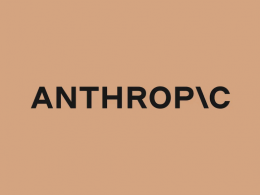Canada aims to be the first country in the world with official regulations covering the emerging artificial intelligence sector, according to François-Philippe Champagne, Canada’s Minister of Innovation, Science and Industry. In a speech at the ALL IN conference on artificial intelligence regulations in Montreal, Quebec, Champagne stated, “The world is looking at us to lead in how we’re going to define the guardrails that are going to be put in place here in Canada and inspire the rest of the world.”
Canada has doubled down on its national AI strategy this year, with the introduction of a voluntary AI code of conduct. Champagne explained that the code of conduct will focus on advanced generative AI and aims to demonstrate to Canadians that the systems they are using are safe and in the public interest. Several major Canadian AI companies, including Cohere, Coveo, Blackberry, and OpenText, have already signed on to the code of conduct.
Bill C-27: Modernizing Privacy Laws and Establishing AI Regulations
Canada’s efforts to regulate AI usage also include the introduction of bill C-27, also known as the Digital Charter Implementation Act. This bill aims to modernize privacy laws and establish regulations around AI usage as technology advances rapidly. It will implement Canada’s new Digital Charter, which focuses on protecting privacy and personal information online. Bill C-27 will also establish the federal Artificial Intelligence and Data Act (AIDA). AIDA will hold companies accountable for managing and using Canadians’ personal data responsibly, while also implementing guidelines for the ethical development and application of AI technologies.
However, there have been criticisms of Canada’s government efforts regarding the proposed bill and voluntary code of conduct. Some activists and tech industry leaders believe that the government is not adequately protecting citizens’ rights or imposing too much red tape on innovation. Over 30 civil society organizations and experts have raised concerns about AIDA, stating that it fails to protect citizens’ rights and lacks public consultation.
Addressing Concerns and Taking Action
In response to these concerns, the Minister of Innovation has stated that he is open to further amendments to the bill and addressing the issues raised by outside groups. The government recognizes the need to build trust in AI products while legislation is being developed. Shopify CEO Tobi Lütke has voiced his complaints about additional regulations, but the Minister assures that specific measures are necessary to address public concerns.
Canada has already taken significant steps towards responsible AI development. The country launched its first national AI strategy in 2017, providing nearly $500 million in funding. Canada also co-founded the Global Partnership on AI (GPAI) in 2018 with France to develop best practices on AI. The Minister emphasized the importance of international alignment and collaboration in managing the opportunities and challenges presented by generative AI.
“People expect us to come out of this summit with answers to their concerns, but also to demonstrate that the world the opportunities.” – François-Philippe Champagne










